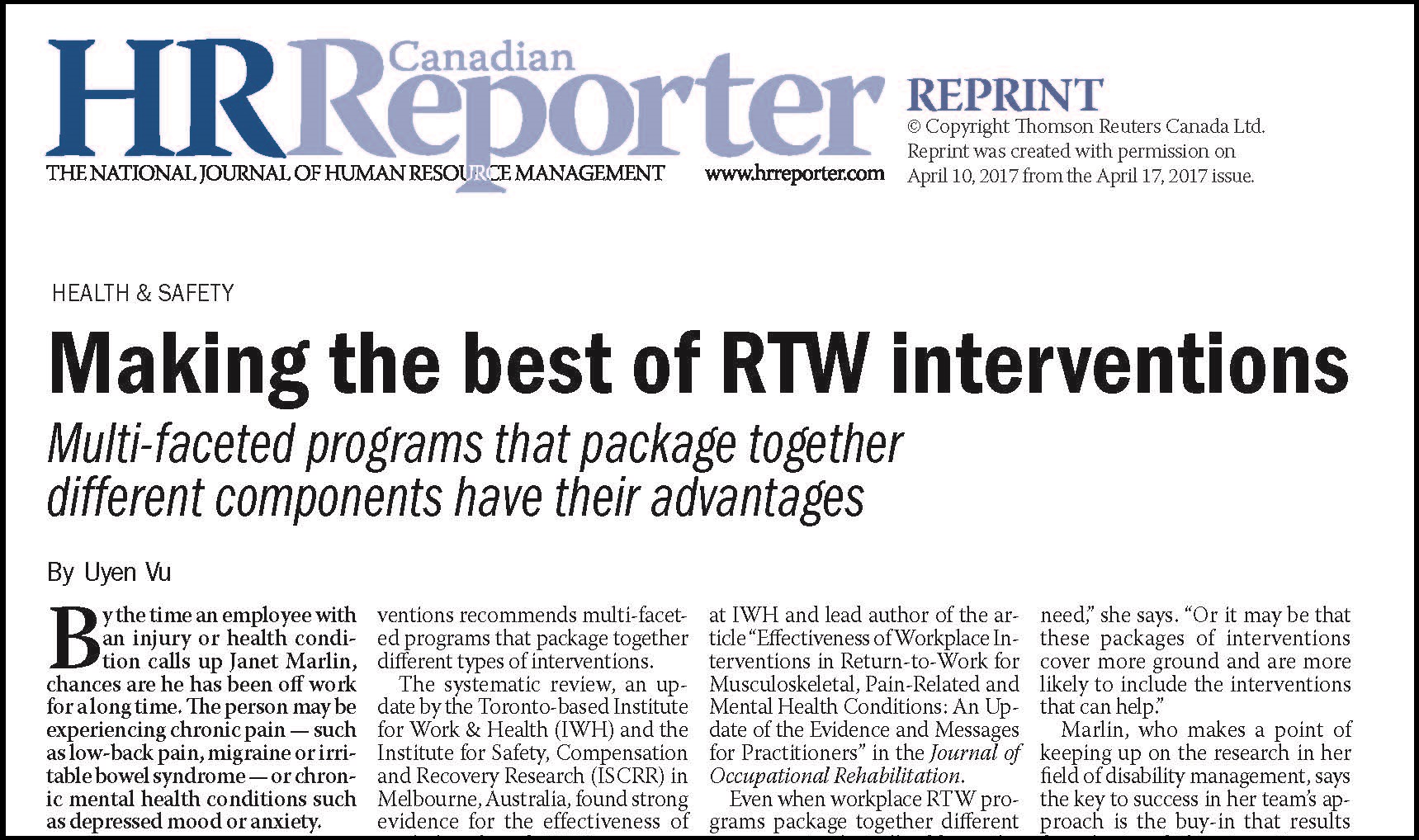Journal Articles
Baer, R. A. (2003). Mindfulness Training as a Clinical Intervention: A Conceptual and Empirical Review. Clinical Psychology: Science and Practice, 10(2), 125-143. DOI: 10.1093/clipsy.bpg015
Blackledge, J. T., & Hayes, S. C. (2006). Using Acceptance and Commitment Training in the Support of Parents of Children Diagnosed with Autism. Child & Family Behaviour Therapy, 28(1), 1-18. DOI: 10.1300/J019v28n01_01
Bluett, E. J. et al. (2014). Acceptance and Commitment Therapy for Anxiety and OCD Spectrum Disorders: An Empirical Review. Journal of Anxiety Disorders, 28(6), 612-624. DOI: 10.1016/j.janxdis.2014.06.008
Bohlmeijer, E. T. et al. (2010). Efficacy of an Early Intervention Based on Acceptance and Commitment Therapy for Adults with Depressive Symptomatology: Evaluation in a Randomized Control Trial. Behaviour Research and Therapy, 49(1), 62-67. DOI: 10.1016/j.brat.2010.10.003
Buhrman, M. et al. (2013). Guided Internet-Delivered Acceptance and Commitment Therapy for Chronic Pain Patients: A Randomized Control Trial. Behaviour Research and Therapy, 51(6), 307-315. DOI: 10.1016/j.brat.2013.02.010
Eifert, G. H., & Heffner, M. (2003). The Effects of Acceptance Versus Control Contexts on Avoidance of Panic-Related Symptoms. Journal of Behavior Therapy and Experimental Psychiatry, 34(3-4), 293-312. DOI: 10.1016/j.jbtep.2003.11.001
Gifford, E. V. et al. (2004). Acceptance Theory-Based Treatment for Smoking Cessation: An Initial Trial of Acceptance and Commitment Therapy. Behaviour therapy, 35, 689-705. DOI: 10.1016/S0005-7894(04)80015-7
Gregg, J. A. et al. (2007). Improving Diabetes Self-Management Through Acceptance, Mindfulness, and Values: A Randomized Control Trial. Journal of Consulting and Clinical Psychology, 75(2), 336-343. DOI: 10.1037/0022-006X.75.2.336
Hayes, S. C. et al. (1999). The Impact of Acceptance Versus Control Rationales on Pain Tolerance. The Psychological Record, 49(1), 33-47.
Healy, H. et al. (2008). An Experimental Test of a Cognitive Defusion Exercise: Coping with Negative and Positive Self-Statements. The Psychological Record, 58(4), 623-640.
Hooper, N., & McHugh, L. (2013). Cognitive Defusion Versus Thought Distraction in the Mitigation of Learned Helplessness. The Psychological Record, 63(1), 209-218.
Kishita, N., & Shimada, H. (2011). Effects of Acceptance-Based Coping on Task Performance and Subjective Stress. Journal of Behavior Therapy and Experimental Psychiatry, 42(1), 6-12. DOI: 10.1016/j.btep.2010.08.005
Lillis, J., & Hayes, S. C. (2007). Applying Acceptance, Mindfulness, and Values to the Reduction of Prejudice: A Pilot Study. Behaviour Modification, 31(4), 389-411. DOI: 10.1177/0145445506298413
Masuda, A. et al. (2004). Cognitive Defusion and Self-Relevant Negative Thoughts: Examining the Impact of a Ninety Year Old Technique. Behaviour Research and Therapy, 42(4), 477-485. DOI: 10.1016/j.brat.2003.10.008

Our Director, Jan Marlin, was featured in a Return to Work article on the Canadian HR Reporter website. To read the full article click here.
Vu, Uyen. (2017, April 17). Making the best of RTW interventions. Canadian HR Reporter.
Interdisciplinary Health Services
Whiting, P., Bagnall, A., Sowden, A.J., Cornell, J.E., Mulrow, C.D. and Ramirez, G. (2001) Interventions for the Treatment and Management of Chronic Fatigue Syndrome: A Systematic Review. Journal of the American Medical Association, 286, 11, 1360-1401.
Ballantyne, J.C. (2006) Editorial: Opioids for Chronic Pain: Taking Stock. Pain, 125, 3-4.
Eriksen, J., Sjogren, P., Bruera, E., Ekholm, O. and Rasmussen, N.K. (2006) Critical Issues on Opioids in Chronic Non-Cancer Pain: An Epidemiologic Study. Pain, 125, 172-179.
Staudenmayer, H., Binkley, K.E., Leznoff, A. and Phillips, S. (2003) Idiopathic Environmental Intolerance: Part 2: A Causation Analysis applying Bradford Hills Criteria to the Psychogenic Theory. Toxicological Review, 22, 4, 247-261.
Marlin, R. G. (2015) A Rose By Any Other Name? Canadian Journal of General Internal Medicine, Vol. 10, Issue 4, 10-12.
Goldberg, W. M. (2015) An Internist’ Journey with Behavioural Medicine. Canadian Journal of General Internal Medicine, Vol. 10, Issue 4, 6-9.
Levine, M. (2015) Editorial: Understanding the Biomedical – Behavioural Continuum. Canadian Journal of General Internal Medicine, Volume 10, Issue 4, Page 4.
Marlin, R.G., Anchel, H., Gibson, J.C., Goldberg, W.M. and Swinton, M. (1998) An Evaluation of Multidisciplinary Intervention for Chronic Fatigue Syndrome with Long-term Follow-up, and a Comparison with Untreated Controls. The American Journal of Medicine, 105, 3A, 110S-114S.
Prins, J.B., van der Meer, J.W.M., Bleijenberg, G. (2006) Chronic Fatigue Syndrome. Lancet, 367, 346-355.
Goldenberg, D.L., Burckhardt, C. and Crofford, L. (2004) Management of Fibromyalgia Syndrome. Journal of the American Medical Association, 292, 2388-2395.
Henningsen, P., Zipfel, S. and Herzog, W. (2007) Management of Functional Somatic Syndromes. Lancet. 369, 946-955.
Corey, D.T., Etlin, D. and Miller, P.C. (1987) A Home-Based Pain Management and Rehabilitation Program: An Evaluation. Pain, 29, 219-229.
Cott, A., Anchel, H., Goldberg, W.M., Fabich, M. and Parkinson, W. (1990) Non-Institutional Treatment of Chronic Pain by Field Management: An Outcome Study with Comparison Group. Pain, 40, 183-194.
Tubach, F., Leclerc, A., Landre, M., and Pietri-Taleb, F. (2002) Risk Factors for Sick Leave due to Low Back Pain: A Prospective Study. Journal of Occupational Environmental Medicine, 44, 5, 451-458.
Dobson, K.S., Dimidjian, S., Kohlenberg, R.J., Rizvi, S.L., Hollon, S.D., Schmaling, K.B., Gallop, R.J., Gollan, J.K., Dunner, D.L. and Jacobson, N.S. (2008) Randomized Trial of Behavioural Activation, Cognitive Therapy, and Antidepressant Medication in the Prevention of Relapse and Recurrence in Major Depression. Journal of Consulting and Clinical Psychology, 76, 3, 468-477.
Dimidjian, S., Hollon, S.D., Dobson, K.S., Schmaling, K.B., Kohlenberg, R.J., Addis, M.E., Gallop, R., McGlinchey, J.B., Markley, D.K., Gollan, J.K., Atkins, D.C., Dunner, D.L. and Jacobson, N.S. (2006) Randomized Trial of Behavioural Activation, Cognitive Therapy, and Antidepressant Medicine in the Acute Treatment of Adults with Major Depression. Journal of Consulting and Clinical Psychology, 74, 4, 658-670.
Cofman, S.J., Martell, C.R., Dimidjian, S., Gallop, R. and Hollon, S.D. (2007) Extreme Non-Response in Cognitive Therapy: Can Behavioural Activation Succeed where Cognitive Therapy Fails? Journal of Consulting and Clinical Psychology, 75, 4, 531-541.
Linton, S.J. and Nordin, E. (2006) A 5-Year Follow-up Evaluation of the Health and Economic Consequences of an Early Cognitive Behavioural Intervention for Back Pain: A Randomized Controlled Trial. Spine, 31, 8, 853-858.
Dhalla, I.A., Mamdani, M.M., Sivilotti, M.L.A., Kopp, A., Qureshi, O. and Juurlink, D.N. (2009) Prescribing of Opioid Analgesics and Related Mortality Before and After the Introduction of Long-Acting Oxycodone. Canadian Medical Association Journal, 181, 12, 891-896.
Fischer, B. and Rehm, J. (2009) Deaths Related to the Use of Prescription Opioids. Canadian Medical Association Journal, 181, 12, 881-882.
Christian, J. et al (2006) American College of Occupational Environmental Medicine Guideline: Preventing Needless Work Disability by Helping People Stay Employed. Journal of Occupational and Environmental Medicine, 48, 9, 972-987.
Keefe, F.J., Abernethy, A.P. and Campbell, L.C. (2005) Psychological Approaches to Understanding and Treating Disease Related Pain. Annual Review of Psychology, 56, 601-30.
Hollon, S.D., Stewart, M.O. and Strunk, D. (2006) Enduring Effects for Cognitive Behaviour Therapy in the Treatment of Depression and Anxiety. Annual Review of Psychology, 57, 285-315.
Rachman, S. (2009) Psychological Treatment of Anxiety: The Evolution of Behaviour Therapy and Cognitive Behaviour Therapy. Annual Review of Clinical Psychology, 5, 139-161.
Stewart, R.E. and Chambless, D.L. (2009) Cognitive Behavioural Therapy for Adult Anxiety Disorders in Clinical Practice: A Meta Analysis of Effectiveness Studies. Journal of Consulting and Clinical Psychology, 77, 4, 595-606.
Gatchel, R.J. and Okifuji, A. (2006) Evidence-Based Scientific Data documenting the Treatment and Cost-Effectiveness of Comprehensive Pain Programs for Chronic Non Malignant Pain. The Journal of Pain, 7, 11, 779-793
P D White, K A Goldsmith, A L Johnson; J C DeCesare, H L Baber, M Burgess, L V Clark, D L Cox, J Bavinton, B J Angus, G Murphy, M Murphy, H O’Dowed, D Wilks, P McCrone, T Chalder, M Sharpe, and on behalf of the PACE trial management group. Comparison of adaptive pacing therapy, cognitive behaviour therapy, graded exercise therapy, and specialist medical care for chronic fatigue syndrome (PACE): a randomised trial. Lancet. 2011;DOI: http://dx.doi.org/10.1016/S0140-6736(11)60096-2 (published online Feb 18
Bleijenberg, G., Knoop, H. Expert Centre for Chronic Fatigue, Radboud University Nijmegen Medical Centre. Commentary: Chronic fatigue syndrome: where to PACE from here?; The Lancet volume 377, No. 9768 pages 786-788. 5 March 2011.
Betses, M., R.Ph., and Brennan, T. M.D., M.P.H; Perspective: Abusive Prescribing of Controlled Substances-A Pharmacy View. N Engl J Med 2013; 369:989-991 September 12, 2013.
Andrea D. Furlan MD PhD, Rhoda Reardon Dip(P&OT), Clarence Weppler BSc Pharm, for the National Opioid Use Guideline Group (NOUGG); Opiods for chronic noncancer pain: a new Canadian practice guideline; CMAJ 182 (9) pages 923-930 June 15, 2010.
Chou, Roger MD; Commentary: What we stilldon’t know about treating noncancer pain wiht opiods; CMAJ 182 (9) pages 881-882 June 15, 2010.
Eccleston, Christpher, edited by Stannard, Catherine MB ChB, FRCA, FFPMRCA; Kalso, Eija MD. DMedSci; Ballantyne, Jane MD, FRCA; Evidence-Based Chronic Pain Managmentment Chapter 6; Psychology of chronic pain and eveidence-based psychological interventions; pages 59-67.
Gheldof, Els L.M.; de Jong, Peter J.; Vink, and Houden, Ruud M.A.; edited by Asmundson, Gordon; Vlaeyen, Johan; Cromez, Geert; Understanding and treating fear of pain; Chapter 6; Attitudes toward physical activity: The role of implicit versus explicit associations; pages 117-137.
Okie, Susan M.D.; Perspective: A Flood of Opiods, a Rising Tide of Deaths; N ENGL J MED 363;21 pages 1981-1985; November 18, 2010.
Winfried Häuser, Kati Thieme, Dennis C. Turk; Review: Guidelines on the management of fibromyalgia syndrome – A systematic review; European Journal of Pain 14 (2010) pages 5-10.
Kearns, Robert D.; Sellinger, John; Goodin, Burel R.; Psychological Treatment of Chronic Pain; Annu. Rev. Clin. Psychol. 2011. 7:411-434.
Mary-Ann Fitzcharles, Neda Faregh, Peter A. Ste-Marie, and Yoram Shir; Clinical Study: Opioid Use in Fibromyalgia Is Associated with Negative Health Related Measures in a Prospective Cohort Study; Hindawi Publishing Corporation; Pain Research and Treatment Vol. 2013, Artice ID 898493; 7 pages.
Ernst, E.; Myeong, Soo Lee; Choi, Tae-Young; Acupuncture: Does it alleviate pain and are there serious risks? A review of reviews; IASP PAIN 152 (2011) pages 755-764.
Lundquist, Christopher; Grande, Ragnhild Berling; Asseth, Kjersti; Russell Michael Bjorn; Dependence scores predict prognosis of medication overuse headache: A prospective cohort from the Akershus of chronic headache; IASP PAIN 153 (2012) pages 682-686.
Naci, Huseyin; Ioannidis, John P A; Research: Comparative effectiveness of exercise and drug interventions on mortality outcomes: metaepidemiological study; BMJ 2013; 14 pages October 1, 2013.
ACOEM Guideline (2006): Preventing Needless Work Disability by Helping People Stay Employed. Journal of Occupational and Environmental Medicine (2006), 48, 9, 972-987;


